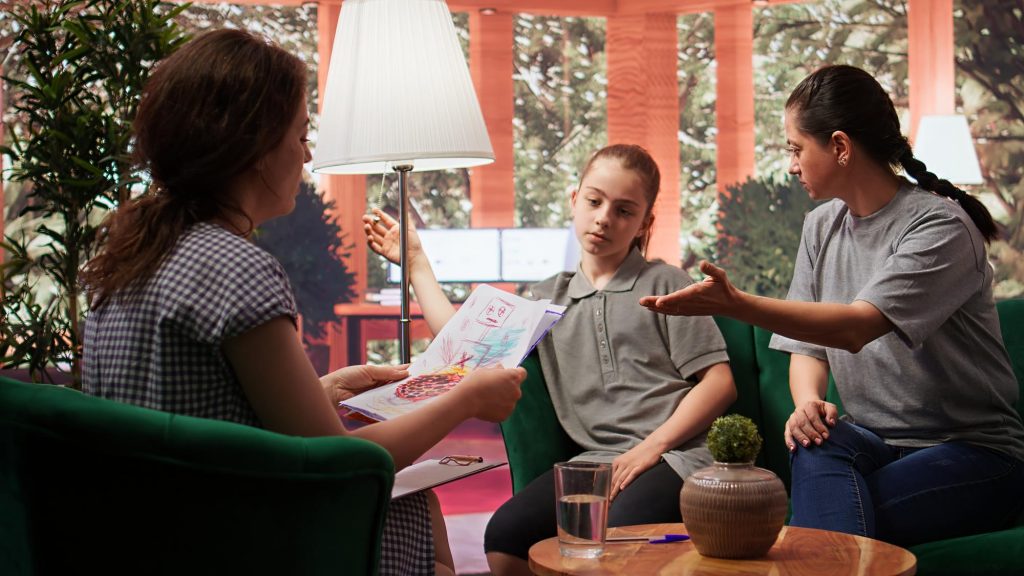Can Career Clubs Replace Traditional Counselling Rooms?
Career guidance is becoming increasingly important for students in Grades 8 to 10 as they navigate academic choices and explore future career paths. Traditionally, schools have relied on counselling rooms where students meet career counselors individually. However, the concept of career clubs is emerging as an interactive and engaging alternative. Could these clubs replace traditional counselling rooms? Let us explore the possibilities and benefits of career clubs in modern schools.
Why Career Guidance is Essential for Teens
Adolescence is a critical period where students start forming ideas about their future. Effective career guidance helps students:
- Understand their strengths and interests
- Explore various career options
- Make informed decisions about subject choices
- Build confidence for future interviews and assessments
- Develop skills such as teamwork, problem-solving, and communication
According to research, students who receive structured career guidance are more likely to choose a career aligned with their strengths and achieve better long-term satisfaction. For more insights on student well-being in schools, refer to Emotional Wellbeing in Schools Beyond Counselling Rooms.
Traditional Counselling Rooms: Strengths and Limitations
Traditional counselling rooms offer one-on-one sessions with trained counselors, which have certain advantages:
- Personalized attention and guidance
- Confidential environment for discussing sensitive topics
- Structured assessment and career planning
However, these rooms also face limitations:
- Limited availability due to counselor to student ratios
- Students may feel intimidated or hesitant to share concerns
- Mostly reactive, focusing on issues rather than proactive skill-building
Introducing Career Clubs
Career clubs are student-led or teacher-facilitated groups where students engage in discussions, workshops, and activities related to career exploration. These clubs aim to:
- Create a peer-supported learning environment
- Encourage active participation and experiential learning
- Provide exposure to different industries through guest sessions and projects
- Promote soft skills such as communication, networking, and leadership
Activities in Career Clubs
Career clubs can be highly interactive and engaging. Some typical activities include:
- Guest Sessions: Professionals from various fields share experiences and insights
- Workshops: Resume building, interview skills, and career planning workshops
- Career Fairs: Students organize mini career expos to explore industries and career options
- Peer Mentoring: Seniors mentor juniors about subject choices and career decisions
- Project-Based Learning: Students work on real-life projects to understand career challenges
Benefits of Career Clubs over Traditional Counselling
While traditional counselling provides personalized guidance, career clubs offer several unique advantages:
- Collaborative Learning: Students learn from peers as well as mentors
- Proactive Engagement: Clubs encourage regular interaction rather than waiting for counseling sessions
- Skill Development: Focuses on leadership, teamwork, communication, and critical thinking
- Accessibility: More students can benefit simultaneously without scheduling constraints
- Practical Exposure: Real-world projects and industry interactions enhance understanding of careers
Challenges of Replacing Counselling Rooms with Career Clubs
Despite the advantages, career clubs cannot fully replace traditional counselling rooms. Some challenges include:
- Lack of personalized guidance for students facing specific challenges
- Potential for misinformation if club activities are not guided by trained counselors
- Dependence on student initiative and motivation
- Requirement for consistent monitoring by school authorities
Therefore, the ideal approach is a hybrid model that combines the personalized guidance of counselling rooms with the collaborative learning environment of career clubs.

Hybrid Approach: The Best of Both Worlds
Schools can implement a hybrid career guidance model to maximize benefits:
- Continue offering one-on-one counselling sessions for personalized guidance
- Establish career clubs to promote peer learning, workshops, and industry interactions
- Use career clubs to prepare students for structured counselling sessions
- Encourage feedback loops where club activities inform counselor strategies
This approach ensures students get both individualized support and exposure to collaborative and experiential learning.
Examples from Schools Implementing Career Clubs
Many schools across India are experimenting with career clubs:
- A high school in Bangalore has created monthly career workshops where students invite industry experts to discuss career trends
- A school in Mumbai uses career clubs to organize peer mentoring sessions where seniors guide juniors in subject selection
- Some international schools in India have combined career clubs with AI-powered career guidance platforms for personalized advice
Role of Parents and Teachers
For career clubs to be successful, parents and teachers must play an active role:
- Encourage participation and provide logistical support
- Guide students to reliable information and credible sources
- Monitor the quality of club activities and mentor sessions
- Recognize and reward students for active engagement and achievements
For further reading, parents and educators can refer to resources like Career Readiness Tips for Students and UNESCO Career Guidance Resources.
Long Term Impact of Career Clubs
Students involved in career clubs tend to develop:
- Enhanced self-confidence and communication skills
- Better understanding of career pathways and industry trends
- Strong peer and mentor networks that support future career decisions
- Early exposure to career planning, improving decision-making skills
Conclusion
Career clubs cannot entirely replace traditional counselling rooms, but they complement them effectively. A hybrid approach ensures that students in Grades 8 to 10 receive both personalized guidance and collaborative, hands-on learning experiences. By fostering career clubs, schools can create an environment where students explore, engage, and prepare for their future with confidence.



